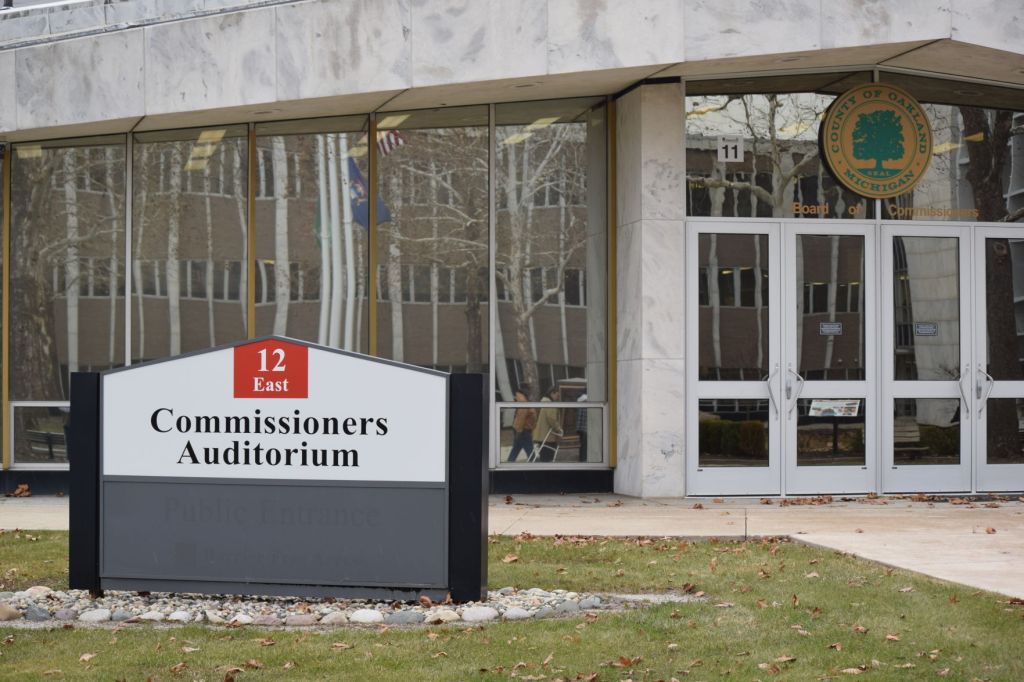By Max Bryan, MediaNews Group
The Oakland County Executive’s push to require financial disclosures from elected and high-level appointed officials was met with concern from some commissioners Thursday.
The proposed resolution requires commissioners, countywide elected officials except for judges and high-ranking members of the county executive’s office to disclose outside financial interests of more than $10,000. Income of the officials or their spouses, organizational affiliations, property, trusts and liabilities are covered in the reporting requirements, according to an initial draft introduced Thursday.
The proposal follows a push from County Executive Dave Coulter to formally introduce the resolution and have it passed by the end of the year. It would be the first update to county ethics since 1990 and would be the first time a dollar amount would be assigned to disclose potential conflicts of interest.
The resolution was introduced at the commissioners’ meeting by Chairman Dave Woodward, who has been the subject of scrutiny within his party for his business interests. Woodward works outside the commission as a paid consultant for the gas station chain Sheetz, which plans to build 50-60 locations in Michigan, including in the chairman’s hometown of Royal Oak.
Woodward said he “fully” supported Coulter’s proposed ethics changes, maintaining that his outside business is not a conflict of interest.
Woodward’s dealings prompted commissioners Charlie Cavell of Ferndale and Kristen Nelson of Waterford Township, both Democrats, to propose a similar financial disclosure resolution in July. Cavell and Nelson no longer caucus with the Democrats in part because their resolution was not passed.
Following the meeting, Democratic Commissioner Yolanda Smith-Charles said “two lone commissioners” should not be allowed to “hold us hostage on getting things done.” Smith-Charles said she was referring to members of the Democratic Caucus, but did not specify which ones.
“The county executive has decided to give them a bone, and so I’m vehemently opposed to it. I don’t think people’s spouses or their adult children who live in their homes should have to have the conversation of, ‘Do I stay a policymaker or do I leave because of an over-intrusion into my public personal life?’” Smith-Charles said, calling the first draft of the resolution “ridiculous.”
Smith-Charles said the fact that Coulter proposed the ethics matter disappoints her “even further.”
“We’re doing excellent work here in Oakland County, and we’re held to the same stringent criteria of any other elected official, which is to be accountable to your community,” she said.
Republican Commissioner Mike Spisz expressed concern Thursday with how the resolution was written.
“Fortunately, it says you don’t have to put in your income, but there’s some other things people have, investments and things like that, that you may or may not have to list,” Spisz said.
Asked about Smith-Charles’ and Spisz’s concerns, Cavell said “the more efforts to root out possible unethical behavior, the better.”
“It’s time that Oakland County residents got a full ethics policy with financial disclosures and the transparency and accountability they deserve,” Cavell said.
Spisz said the resolution doesn’t have disciplinary actions for not disclosing financial interests.
“I think it’s going to get some interesting discussions,” Spisz said of the resolution, which has been referred to the commission’s Legislative Affairs and Government Operations Committee.
Financial disclosures were only part of the ethics changes Coulter proposed Oct. 3. His proposals include the disclosures be posted online for public viewing, and that the county hire an ombudsperson to enforce the rules.
The county’s current standards of conduct do not have a set dollar threshold for conflicts of interest.
Coulter praised the resolution introduction Thursday evening, which he believes “will help advance transparency and public confidence.”
“I look forward to working with the board in the coming weeks to finalize this and other measures to strengthen the county’s ethics policies,” Coulter said in a prepared statement. “I am confident that all of us as county leaders take that responsibility seriously. Holding public office is a public trust, and we’re committed to acting in the best interests of the people we serve.”

